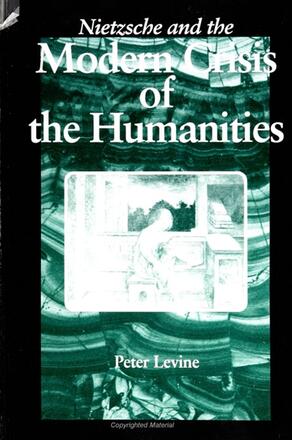
Nietzsche and the Modern Crisis of the Humanities
Alternative formats available from:
This is a critique of Nietzsche's theory of culture that proposes an alternative paradigm allowing a defense of the humanities against such Nietzschians as Leo Strauss and Derrida.
Description
Levine argues that Strauss and Derrida have much in common, including an idealist, reified concept of culture that both inherited from Nietzsche. Levine interprets all of Nietzsche's basic doctrines in terms of this concept. Nietzsche's definition of culture produced epistemological and moral dilemmas for him and his followers, and encouraged them to devise alternatives to mainstream humanities. Levine, however, offers an alternative paradigm of culture that better fits the data and allows us to understand and defend the humanities as a source of value.
Peter Levine is a Research Scholar in the Institute for Philosophy and Public Policy in the School of Public Affairs at the University of Maryland, College Park.
Reviews
"The book is ambitious and well-informed as it moves to place Nietzsche in a complex contemporary context that joins philosophy, culture criticism, and educational policy. More specifically, it fleshes out the exact nature of the young Nietzsche's contact with the humanist tradition, defines the manner in which his early thought embraces certain nineteenth-century historicist assumptions about culture, then traces the effects of these assumptions in his mature thought and in the thought of two important recent thinkers, Leo Strauss and Jacques Derrida. It concludes with a pointed intervention in current debates about the humanities and multiculturalism. In general, the book sharpened my thinking about a cluster of crucial issues both in Nietzsche and in contemporary culture." — John Burt Foster, Jr., George Mason University